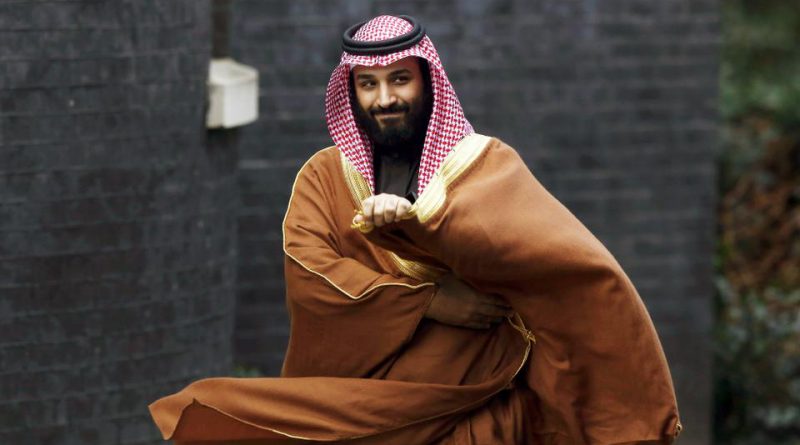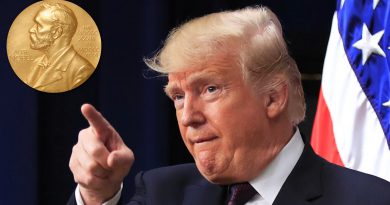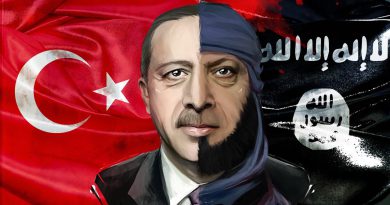OPINION: Saudi Arabia and Counter-terrorism—Rooting out the Weeds of Extremism
by Sultan Althari
Saudi efforts focus on understanding and addressing the roots of radicalisation, rather than operating on a reactionary basis.
During recent years, the Middle East has been plagued with pernicious ideological deviations that have led to radicalisation, substance abuse and apathy. While radicalisation results in the formation of non-state actors like Al-Qa’ida, the terror-state “Daesh”/ISIL, and state-sponsored terror, its impact extends further.
Radicalisation encompasses organisation at both operational and intellectual levels, thereby presenting a virulent threat to regional security and international stability. As such, the Kingdom is working to combat the multi-faceted threat of extremism by focusing on three main areas of concern—namely security (the men), financial controls (the money) and “de-radicalisation” (the mindset).
An indispensable force in the global fight against terrorism, Saudi efforts focus on understanding and addressing the roots of radicalisation, rather than operating on a reactionary basis. This commitment is coupled with a unique desire by Saudi youth—through smaller scale organisations—to showcase the Kingdom’s tolerant and inclusive nature to the world at large.
Before delving into the Kingdom’s current counter-terrorism initiatives, it is important to provide an accurate historical framework for ideological radicalisation in the region more broadly.
In a recent interview with Time magazine, Crown Prince Mohammad Bin Salman commented on the evolution of Islamic practice in the Kingdom, and how this evolution is seen as a stark departure from the true nature of Islam: “We believe the practice today in a few countries, among them Saudi Arabia, it’s not the practice of Islam. It’s the practice of the people who have hijacked Islam after ’79.” Various questions arise as to how the practice of Islam has been hijacked in recent years, and why.
The 1979 Iranian Revolution invigorated religious revivalism throughout the Middle East. Inspired by the regional upheaval, cells of militant extremists began to accuse Saudi officials of moral decadence.
One of those cells, led by Juhaiman bin Muhammad Al-‘Utaibah, seized control of the Grand Mosque in Mecca for two weeks, when he declared himself the Mahdi (an expected messiah in Islam).
The Saudi government sought to subvert this radical current by supporting a conglomerate of progressive scholars known as the Islamic Awakening (al-Sahwa al-Islamiyyah). Therefore, the Awakening movement was restorative in its intentions. Yet, it morphed into a hybrid of fundamentalist ideology and revolutionary political Islam due to extremists who distorted the movement’s linguistic and normative significance. This gave birth to societies averse to pluralism, both religious and civil, remotely distant from the true tolerant nature of Islam.
Prior to Sahwa-inspired conservatism, Saudi society enjoyed a great degree of freedom— various arts flourished while Saudi women were actively involved in the country’s workforce.
Today, Crown Prince Mohammad Bin Salman publicly stated his intent to bring the Kingdom back to moderate Islam—one that embraces interfaith dialogue and intra-Islamic tolerance. Efforts towards greater moderation have extended to curricula taught in the Kingdom’s most conservative educational institution—namely, Imam Muhammad Ibn Saud Islamic University in Riyadh.
After a thorough follow-up conducted by prominent member of the Council of Senior Scholars, Dr. Suliman Aba Al-Khail, the university’s administrative council decided not to renew the contract of a number of academics, both Saudi and foreign, who are affiliated with the ideology of the Muslim Brotherhood (an Islamist organisation identified as a terrorist group by several Muslim-majority nations).
Dr. Abdullah al-Assaf, a professor of social sciences at Imam University, lauded the move as “a good step” and stressed, “Those academics nourish the minds of the youth and therefore, have a great influence on them… They are also capable of recruiting some students to adopt malicious ideologies that are currently spread in several Arab communities, leading to strife and division.”
This was highlighted by President Trump’s historic visit to Riyadh and an unprecedented Islamic-American Summit. Muslim leaders gathered with his highness King Salman and President Trump in a joint summit aimed at fostering an international commitment to eradicating terrorism and violent extremism, while rooting out the funders and supporters of such networks.
The commitment to fight this scourge was not limited to traditional combat, but also through starving these groups financially and implementing technological and ideological counter-terror strategies. The visit marked the launch of the Global Anti-Extremism centre Etidal, a world-class centre to fight terrorist narratives and extremist content on the web.
This is yet another realisation of Crown Prince Mohammad Bin Salman’s vision of transforming the Kingdom into a force to be reckoned with in the global fight against extremism. It is a fight that requires robust cooperation, strategy, resilience and unification.
The region has also witnessed an increase in grassroots activism, as seen in recent efforts spearheaded by Saudi youth. For instance, in an effort to promote inter-faith dialogue, Saudis For Peace stands out as a non-profit organisation that aims to build bridges of understanding and mutual respect between people of diverse religious and cultural backgrounds.
Cross-cultural communication serves as an indispensable element of an inclusive Kingdom going forward; “Salam” is a project launched and maintained by young Saudis, dedicated specifically to bridging the chasm between Saudis and the global community, thereby eliminating barriers and promoting inclusive dialogue.
The efforts discussed in this article illustrate the extent to which global counter-terrorism requires effective synergy between local and international entities to ensure tolerance, inclusive dialogue, and decisive action.
And in our modern era of big tech, it is crucial that governments and Silicon Valley collaborate towards innovating proactive solutions that address the cyber dimension of this threat.
The Internet cannot serve as global recruitment hub for terrorist groups. This demands productive engagement with the regional offices of companies like Google, Facebook, and Twitter. By exploring these avenues and more, the Kingdom is seeking to further its role as a leader in the region and a global partner in the fight against terrorism.
Article first published on Vision of Humanity.
Sultan Althari is a Master’s Candidate in Middle Eastern Studies at Harvard University’s Graduate School of Arts and Sciences (GSAS). He tweets under @Sultanalthari
Disclaimer: Views expressed by writers in this section are their own and do not reflect Milli Chronicle’s point-of-view.



